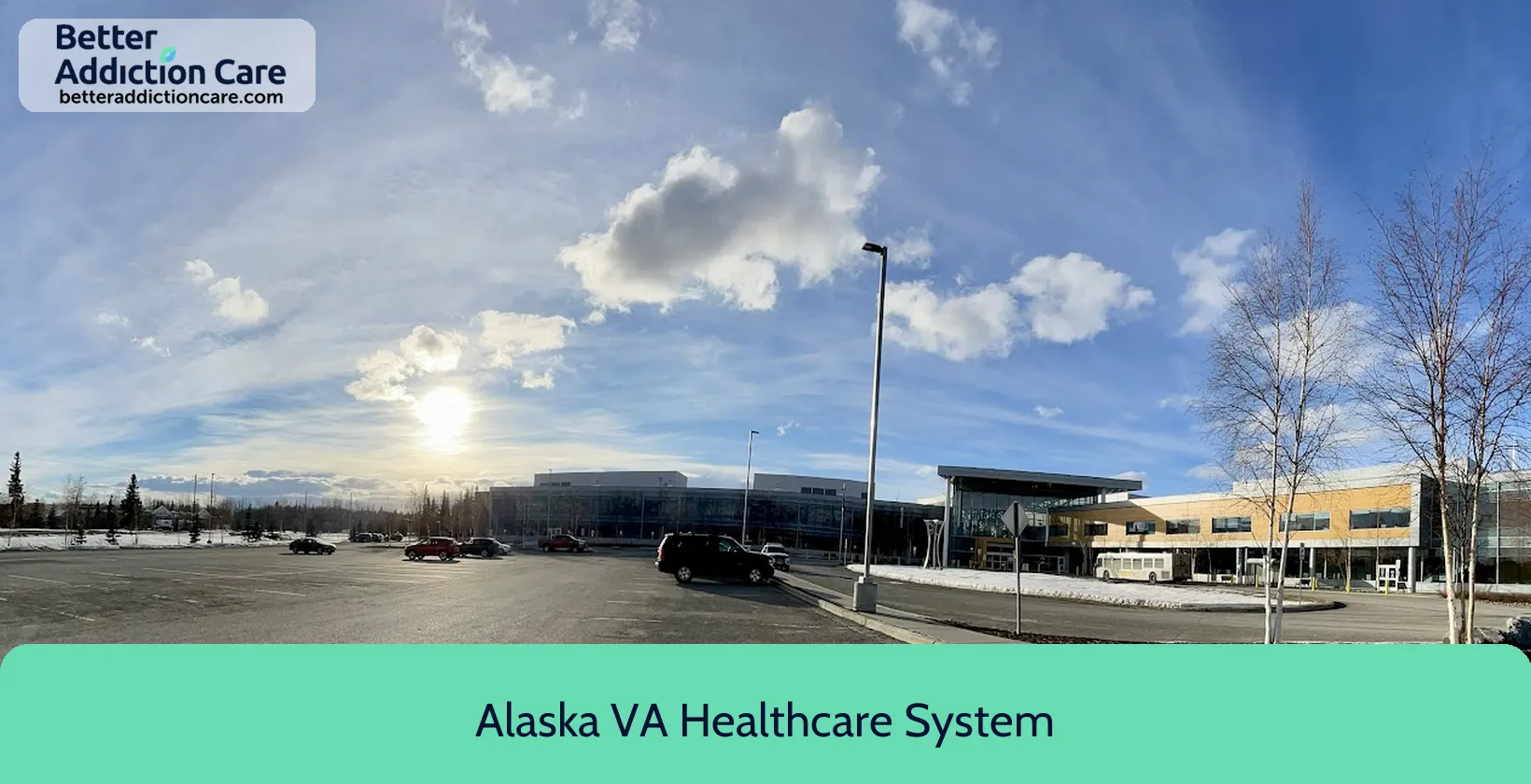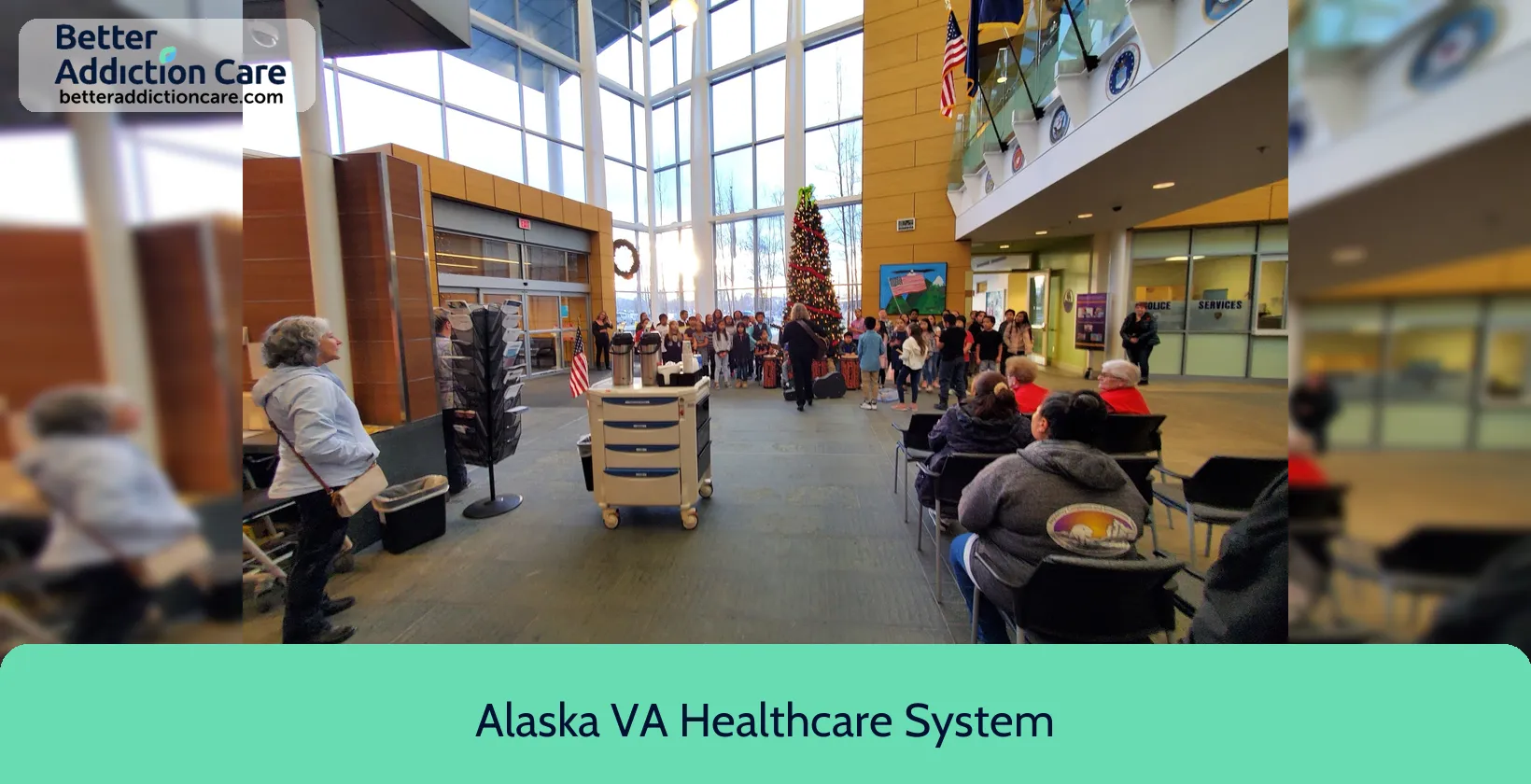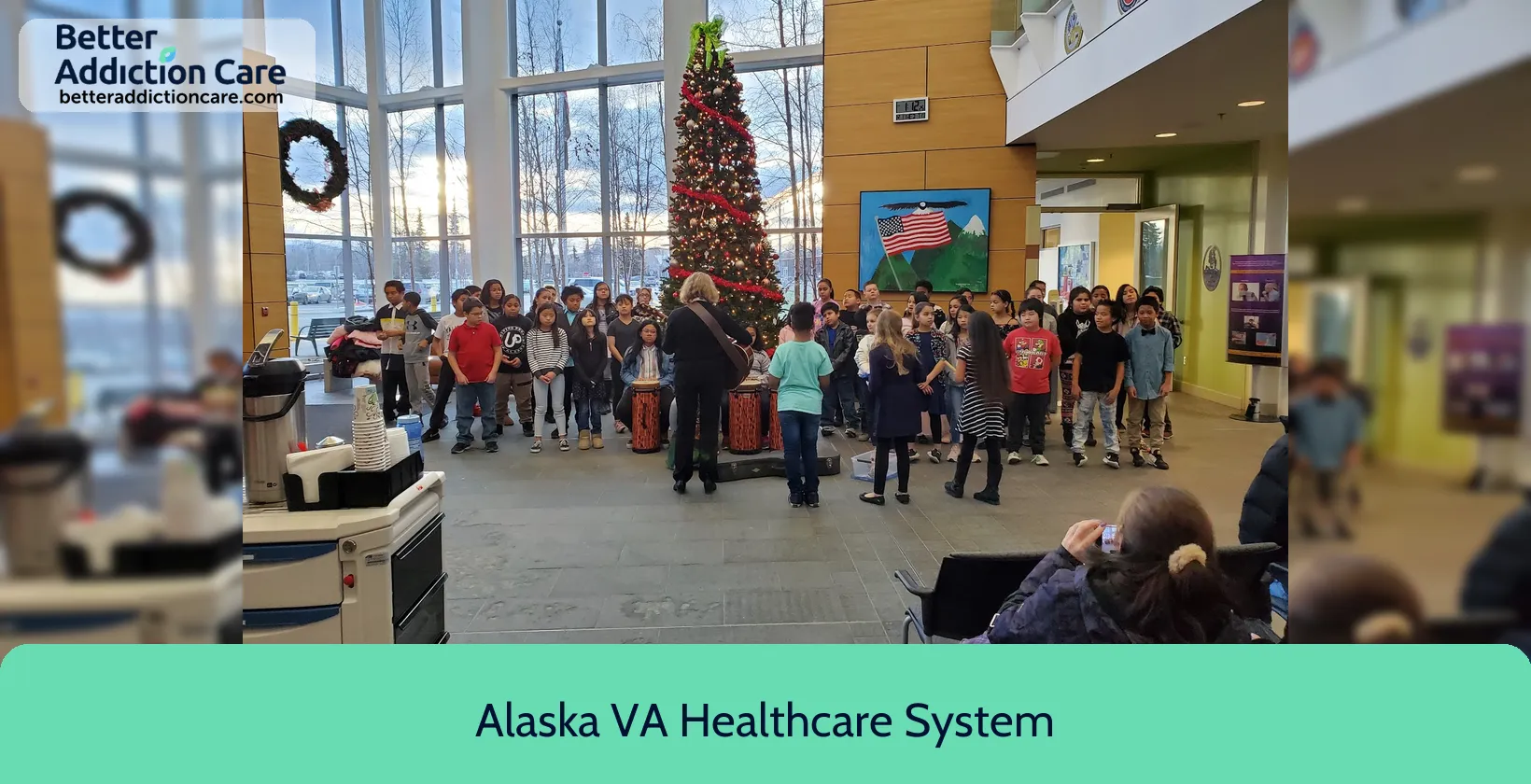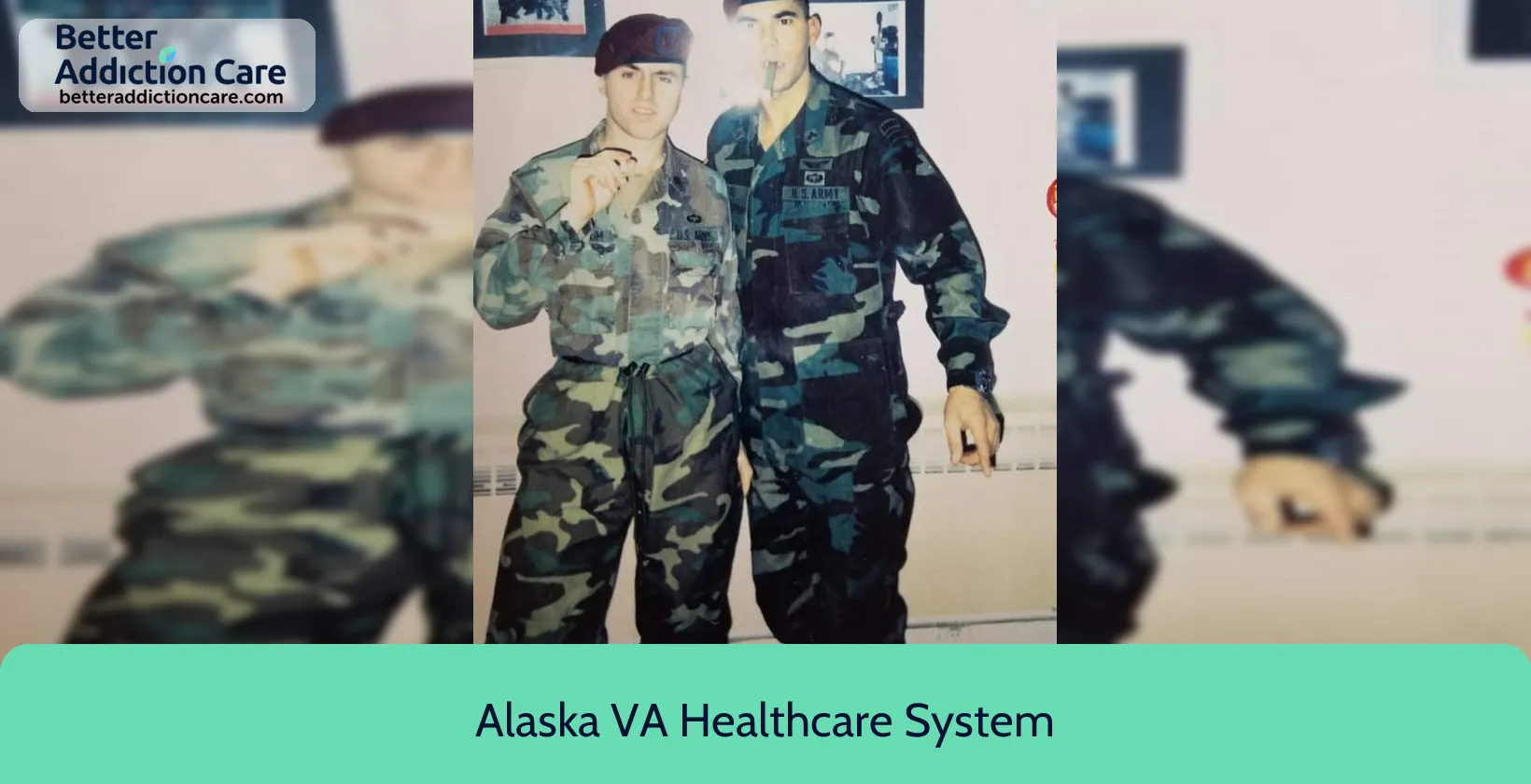Alaska VA Healthcare System
Overview
Alaska VA Healthcare System is a mental health treatment center for people seeking treatment near Anchorage County. As part of their treatment modalities for recovery, Alaska VA Healthcare System provides individual psychotherapy, cognitive behavioral therapy, and integrated mental and substance use disorder treatment during treatment. Alaska VA Healthcare System is located in Anchorage, Alaska, accepting state-financed health insurance plan other than medicaid for treatment.
Alaska VA Healthcare System at a Glance
Payment Options
- State-financed health insurance plan other than Medicaid
- Private health insurance
- U.S. Department of VA funds
- Cash or self-payment
Assessments
- Screening for tobacco use
- Comprehensive mental health assessment
- Comprehensive substance use assessment
- Interim services for clients
- Outreach to persons in the community
Age Groups
- Seniors or older adults
- Young adults
- Adults
- Seniors
Ancillary Services
- Assertive community treatment
- Case management service
- Chronic disease/illness management
- Court-ordered outpatient treatment
- Diet and exercise counseling
Highlights About Alaska VA Healthcare System
7.52/10
With an overall rating of 7.52/10, this facility has following balanced range of services. Alcohol Rehabilitation: 8.00/10, Drug Rehab and Detox: 8.15/10, Insurance and Payments: 6.00/10, Treatment Options: 7.94/10.-
Drug Rehab and Detox 8.15
-
Alcohol Rehabilitation 8.00
-
Treatment Options 7.94
-
Insurance and Payments 6.00
Accreditations
The Joint Commission:

The Joint Commission's addiction and behavioral health accreditation signifies a facility's commitment to high-quality care. It involves rigorous evaluations and assessments of clinical practices, ensuring effective, evidence-based treatment. Accreditation showcases a dedication to continuous improvement and patient safety, instilling trust among patients, families, and healthcare professionals. It's a mark of excellence in addiction and behavioral health care.
Commission on Accreditation of Rehabilitation Facilities (CARF):

Established in 1966, the non-profit organization known as the Commission on Accreditation of Rehabilitation Facilities (CARF) has a dedicated focus on accrediting rehabilitation organizations. CARF's primary mission is to assist service providers, particularly rehabilitation facilities, in upholding and promoting the highest standards of care.
Treatment At Alaska VA Healthcare System
Treatment Conditions
- Mental health treatment
- Alcoholism
- Substance use treatment
- Co-occurring Disorders
Care Levels
- Hospital inpatient treatment
- Partial Hospitalization Program
- Outpatient
- Short-term residential
- Long-term residential
Treatment Modalities
- Individual psychotherapy
- Cognitive behavioral therapy
- Integrated Mental and Substance Use Disorder treatment
- Activity therapy
- Telemedicine/telehealth therapy
Ancillary Services
Additional Services
- Pharmacotherapies administered during treatment
- Mentoring/peer support
- Breathalyzer or blood alcohol testing
Special Programs
- Clients with co-occurring mental and substance use disorders
- Veterans
- Criminal justice (other than DUI/DWI)/Forensic clients
- Clients with HIV or AIDS
- Clients who have experienced trauma
Get Help Now
Common Questions About Alaska VA Healthcare System
Contact Information
Other Facilities in Anchorage

6.93

7.48

6.83

6.71

6.74

7.40

6.68

7.42
DISCLAIMER: The facility name, logo and brand are the property and registered trademarks of Workit Health, and are being used for identification and informational purposes only. Use of these names, logos and brands shall not imply endorsement. BetterAddictionCare.com is not affiliated with or sponsored by Workit Health.




